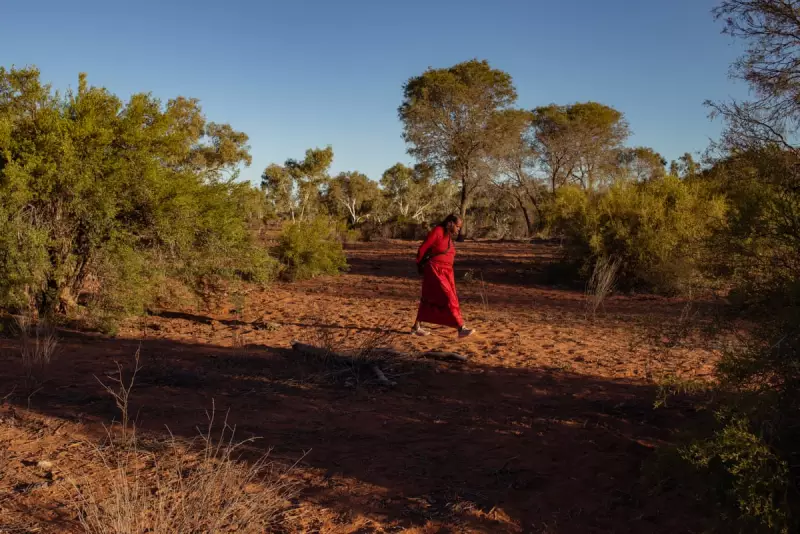
In the vast, sun-scorched heart of Australia's Northern Territory, a profound battle is unfolding—a fight for the very soul of the desert. Traditional Owners are standing as the last line of defence, protecting ancient, sacred sites and life-giving water sources from what has become the territory's largest commercial water licence.
The Heart of the Conflict: A Thirsty Enterprise
At the centre of the dispute is a monumental licence granted to Fortune Agribusiness, permitting the extraction of a staggering 40,000 megalitres of water annually from the deep aquifers beneath the desert. This volume is equivalent to 16,000 Olympic-sized swimming pools, a extraction rate that has sparked deep alarm among the region's Aboriginal custodians.
For the Traditional Owners, this isn't merely a resource dispute; it's a direct threat to their cultural existence. The water, known as Kapi, is intertwined with sacred songlines, creation stories, and ceremonial sites that have defined their connection to country for millennia.
More Than Water: A Cultural Catastrophe
Elder and Senior Traditional Owner Elaine Johnson gives a stark warning, her words echoing the gravity of the situation: "If the water goes, we've got nothing... It is the most precious thing in the desert."
This sentiment cuts to the core of the issue. The potential drawdown of the aquifer could desiccate natural springs and soaks, which are not only vital for surviving the harsh desert climate but are also integral to cultural practices and the health of the entire ecosystem.
Legal Challenges and a Flawed Process?
The Central Land Council (CLC), representing the Traditional Owners, is mounting a legal challenge against the Northern Territory government's decision. They argue the consultation process was fundamentally inadequate, failing to properly inform them of the licence's immense scale and potential consequences.
Allegations have emerged that consultations were conducted in English, without qualified interpreters, leaving Elders without a full understanding of the project's risks. Furthermore, the government is accused of withholding a crucial report from its own independent water controller for over a year, a report that reportedly recommended a significantly smaller water allocation.
A National Pattern of Disregard
This conflict resonates beyond the red dirt of the NT, echoing the national outcry following the destruction of Juukan Gorge. It raises urgent, uncomfortable questions about the balance between economic development and the irrevocable protection of the world's oldest living culture's heritage.
As legal proceedings continue, the eyes of the nation are on this remote desert, watching a struggle that will test Australia's commitment to reconciliation and environmental stewardship.





